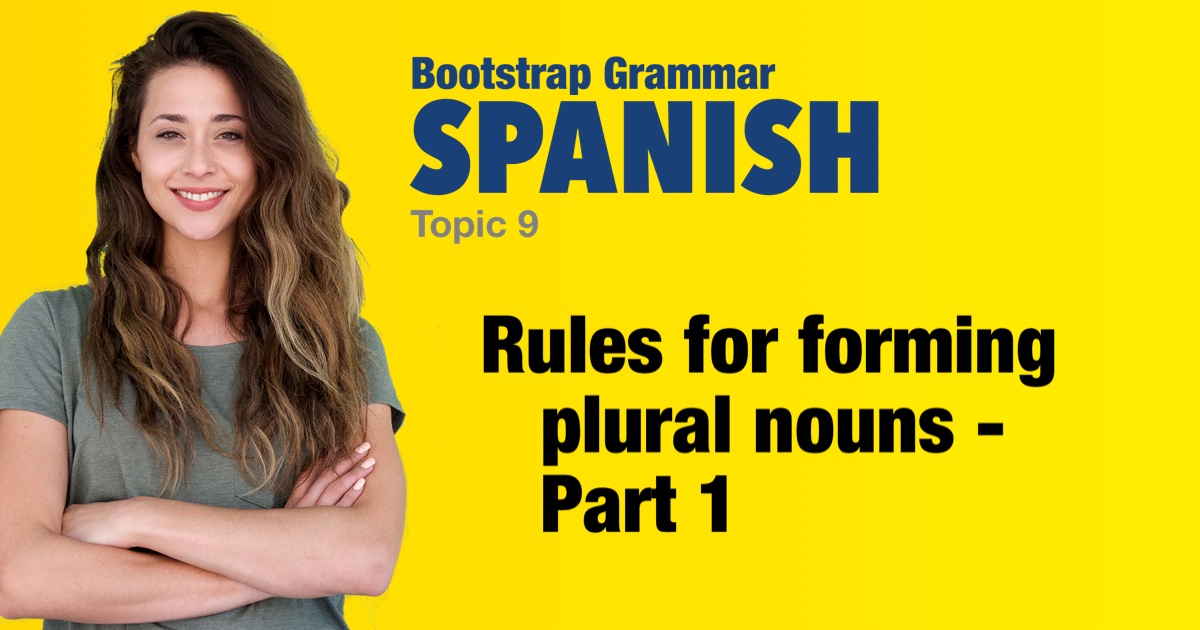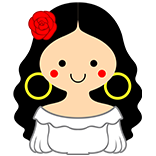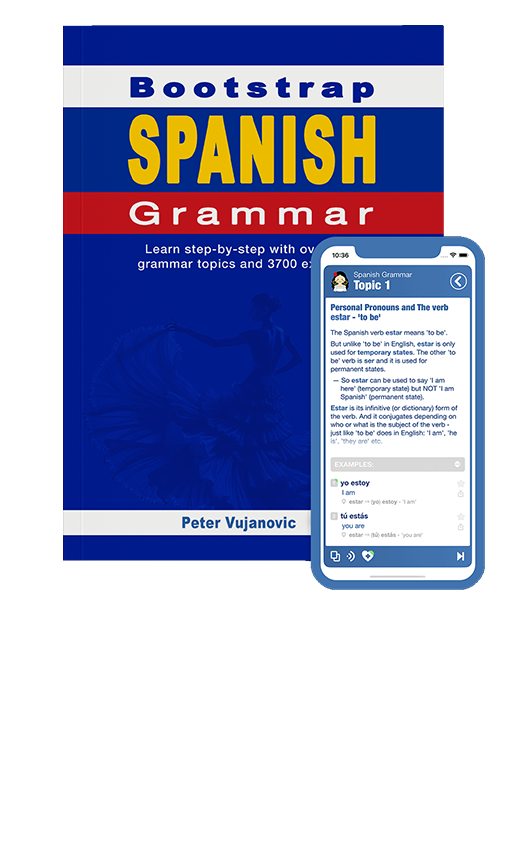Spanish grammar - Rules for forming plural nouns - Part 1 |
|||
|
|||
In Spanish, the formation of plural nouns follows specific rules based on the ending of the singular form of the noun. If the noun ends with a vowel (a, e, i, o, u) we simply add -s. -- So libro (book) ⇒ libros (books) And if the noun ends in a consonant, we simply add -es. -- So árbol (tree) ⇒ árboles (trees) This topic also introduces the numbers 'one' to 'twenty' Note that the number 'one' varies according to the gender of the counted object - un for masculine and una for feminine. All numbers that end with 'one' also change in this way. So 'twenty-one' is veintiún (m) and veintiuna (f). |
| Examples: | |
|
un español - dos españoles
one Spaniard (masculine) - two Spaniards (masculine)
|
|
|
una española - dos españolas
one Spaniard (feminine) - two Spaniards (feminine)
|
|
|
una escuela - dos escuelas
one school - two schools
|
|
|
una universidad - tres universidades
one university - three universities
|
|
|
un hombre - cuatro hombres
one man - four men
|
|
|
una mujer - cinco mujeres
one woman - five women
|
|
|
una casa - seis casas
one house - six houses
|
|
|
un país - siete países
one country - seven countries
|
|
|
un año - ocho años
one year - eight years
|
|
|
una cosa - nueve cosas
one thing - nine things
|
|
|
una parte - diez partes
one part - ten parts
|
|
|
un trabajo - once trabajos
one job - eleven jobs
|
|
|
una persona - doce personas
one person - twelve people
|
|
|
una vez - trece veces
one time - thirteen times
|
|
|
una hora - catorce horas
one hour - fourteen hours
|
|
|
un lugar - quince lugares
one place - fifteen places
|
|
|
un árbol - dieciséis árboles
one tree - sixteen trees
|
|
|
un animal - diecisiete animales
one animal - seventeen animals
|
|
|
una flor - dieciocho flores
one flower - eighteen flowers
|
|
|
un color - diecinueve colores
one color - nineteen colors
|
|
|
un euro - veinte euros
one euro - twenty euros
|
|
 |
|




